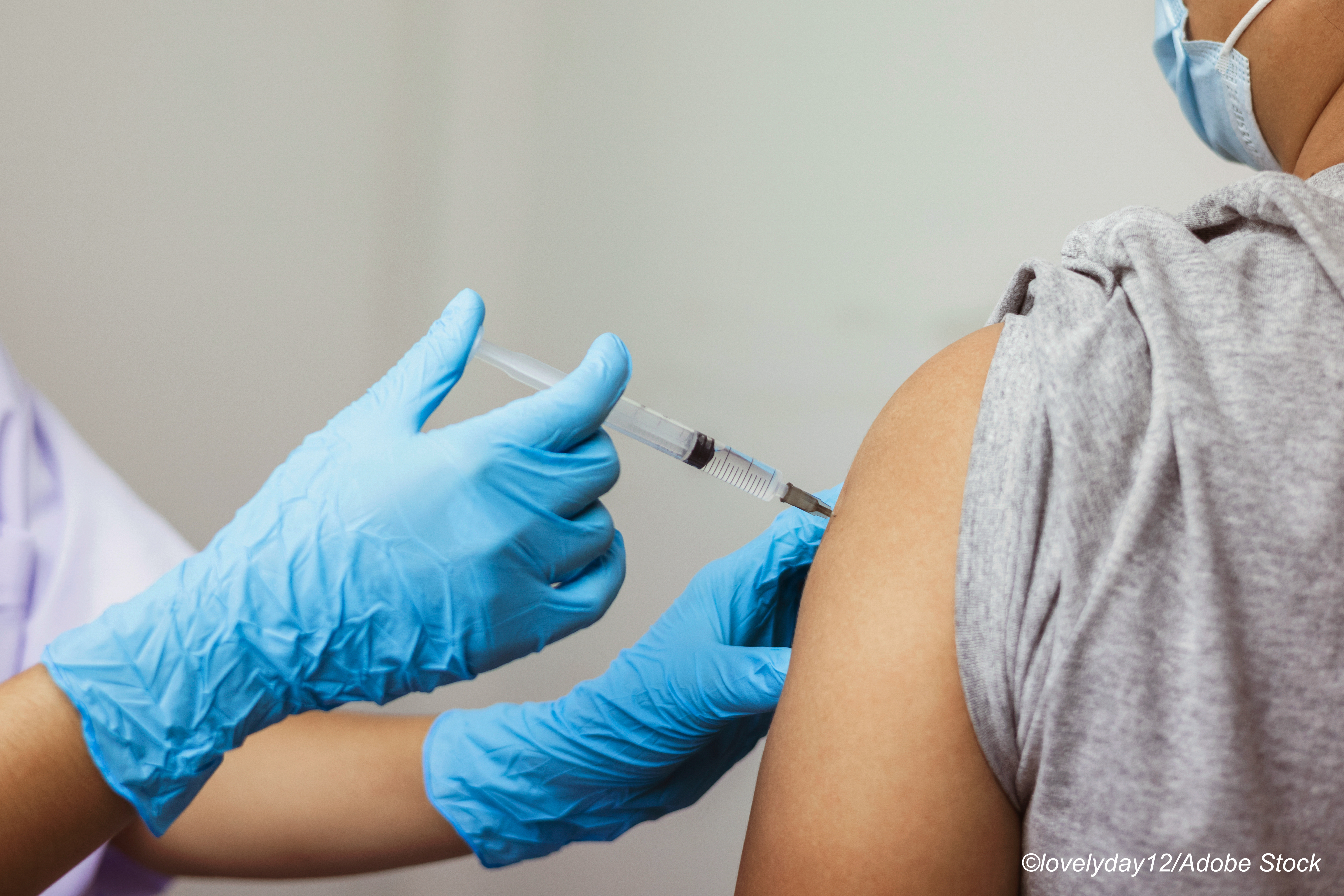The NVX-CoV2373 (Novavax) Covid-19 vaccine had an efficacy of greater than 90% against SARS-CoV-2 infection in the phase III PREVENT-19 trial conducted in the United States and Mexico largely during the first half of 2021.
Vaccine efficacy against moderate-to-severe disease was 100% in the trial, which was conducted before the emergence of the Delta variant, when the SARS-CoV-2 Alpha variant was predominant in the U.S. and Mexico.
The peer-reviewed analysis of the phase III trial results were published online December 15 in The New England Journal of Medicine.
Despite the lack of efficacy data on delta and newer SARS-CoV-2 variants of concern, researchers concluded that the Novavax proprietary adjuvant Matrix-M recombinant protein vaccine “can be added to the portfolio of vaccines that are safe and highly protective against contemporary SARS-CoV-2 strains and that have an acceptable side-effect profile.”
“The extended stability and easy storage requirements (up to 6 months at refrigerator temperatures) make it well suited for global deployment,” wrote researcher Lisa Dunkle, MD, of Novavax, Inc., and colleagues.
The NVX-CoV2373 vaccine has been awarded emergency use authorization status in Indonesia and the Philippines, and it also recently submitted regulatory filings for use of the vaccine in the U.K., Australia, New Zealand, Canada, the European Union, Singapore, and the United Arab Emirates.
The company has also announced plans to formally petition the U.S. Food and Drug Administration for approval of the vaccine for use in the United States within the next few weeks.
In a phase III trial conducted in the U.K and reported late last June in The New England Journal of Medicine, the vaccine demonstrated efficacy of 96.4% against the original virus strain, 86.3% against the Alpha (B.1.1.7) variant and 89.7% efficacy overall.
The PREVENT-19 trial involved adults (18 years and older) without a history of SARS-CoV-2 infection randomly assigned 2:1 to receive two doses of NVX-CoV2373 or placebo 21 days apart.
The primary study endpoint was vaccine efficacy against RT-PCR–confirmed Covid-19 occurring at least 7 days after the second dose of vaccine. Secondary endpoints included vaccine efficacy against moderate-to-severe disease and against emerging variants.
Of the 29,949 participants who underwent randomization in the PREVENT-19 trial between Dec. 27, 2020, and Feb. 18, 2021, a total of 29,582 (median age, 47 years; 12.6% ≥65 years of age) received at least one dose of vaccine, with 19,714 receiving the NVX-CoV2373 vaccine and 9868 placebo.
During 3 months of observation, 77 cases of Covid-19 were identified, including 14 cases identified among vaccine recipients and 63 among placebo recipients (vaccine efficacy, 90.4%; 95% CI, 82.9-94.6; P<0.001).
In all, the cohort experienced 10 moderate and 4 severe cases of Covid-19 and all occurred in the placebo group (100% vaccine efficacy against moderate-to-severe disease, 95% CI, 87.0-100).
“Most sequenced viral genomes (48 of 61, 79%) were variants of concern or interest—largely B.1.1.7 (Alpha) (31 of the 35 genomes for variants of concern, 89%),” the researchers wrote, noting that vaccine efficacy against any variant of concern or interest was 92.6% (95% CI, 83.6 to 96.7).
Reactogenicity was mostly mild to moderate and transient, with the most frequent reactogenicity reported after the second dose of the NVX-CoV2373 vaccine.
Study limitations cited by the researchers included the “imbalance of unblinding requests by trial participants at early stages of the trial,” which coincided with introduction of other vaccines under EUA in the United States.
“Participants who apparently surmised, on the basis of an absence of reactogenicity symptoms, that they had received placebo requested unblinding more often than did those who received NVX-CoV2373,” they wrote, adding that this led to the exclusion of a higher number of placebo recipients from the per-protocol population for the assessment of efficacy.
Vaccine efficacy was also assessed over a short period during a “rapidly evolving pandemic,” the researchers added.
Despite these and other cited limitations, the researchers concluded that “the efficacy of NVX-CoV2373 in preventing moderate-to-severe Covid-19 in people at high risk for acquisition and complications of Covid-19 will make this vaccine a valuable tool in controlling the pandemic and its most serious health and economic consequences.”
-
The NVX-CoV2373 Covid-19 vaccine had an efficacy of greater than 90% against SARS-CoV-2 infection in the phase III PREVENT-19 trial conducted in the United States and Mexico largely during the first half of 2021.
-
Vaccine efficacy against moderate-to-severe disease was 100% in the trial, which was conducted before the emergence of the Delta variant.
Salynn Boyles, Contributing Writer, BreakingMED™
This research was funded by Novavax and others. Lead researcher Lisa Dunkle and several other study investigators are employed by Novavax.
Cat ID: 125
Topic ID: 79,125,730,933,125,926,192,927,151,928,925,934



